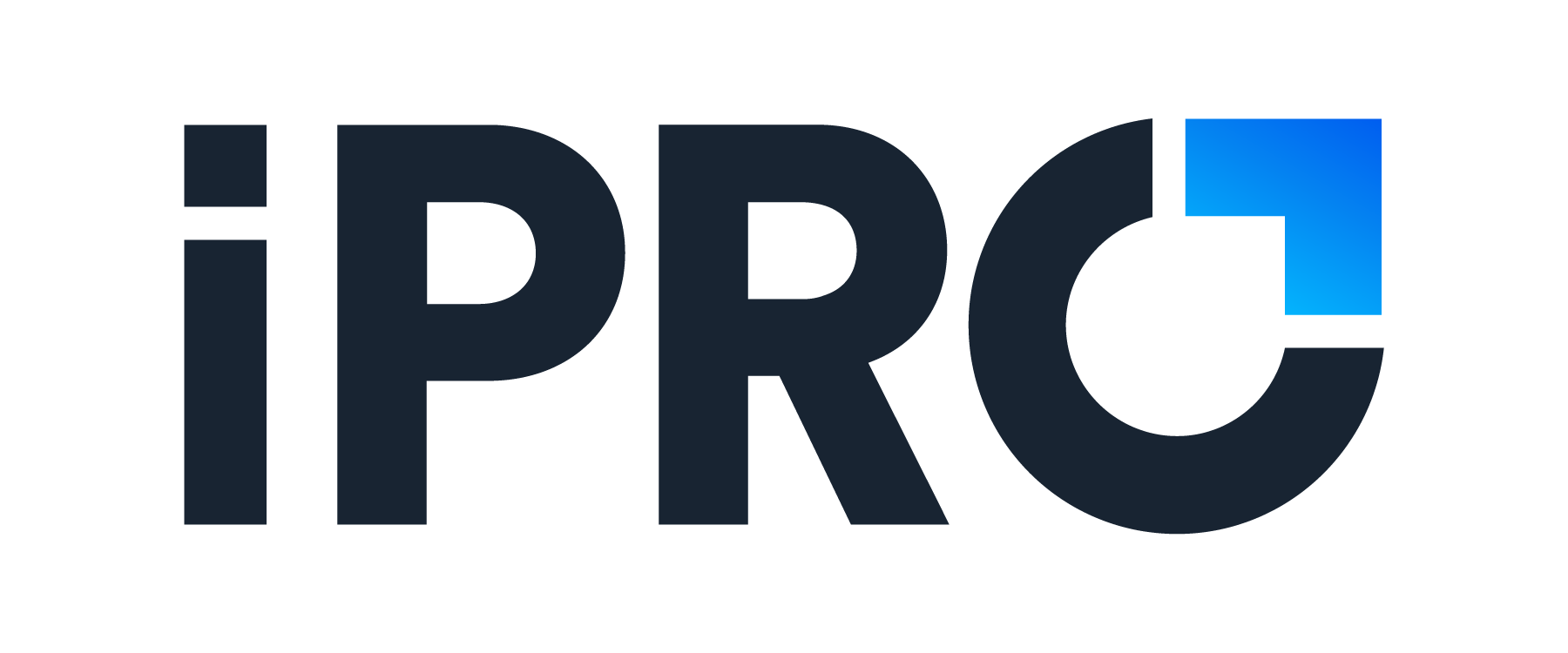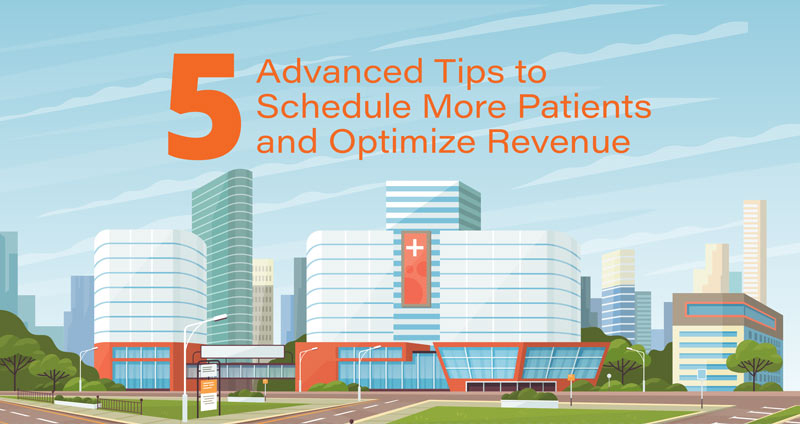2023 will soon be in the rearview mirror. As healthcare leaders shift their focus to 2024, we’ve compiled a list of four initiatives we think they should keep top of mind:
- System upgrades & migration
- Easier data sharing/interoperability
- Risk mitigation, and
- Multi-departmental benefits
Short on time? Watch the byte-sized version of this blog.
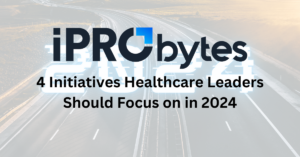
System Upgrades and Migration
One major healthcare initiative to focus on in 2024 is system upgrades and migration. Healthcare is an ever-evolving industry with the constant threat of disruption, which means providers should strive to keep up with the latest tech. While this includes innovative tech like AI, it also means upgrading your current tech solutions and systems. Whether it’s an outdated EHR or PACS, a system upgrade can help increase efficiency, reduce burnout, and provide better care for patients.
System upgrades often require data migration as well. This can be a time-consuming and stressful process. In a recent HIMSSCast by Healthcare IT News, Rich Amelio, VP of Healthcare IT Operations and Consulting at consulting firm e4Health, offers the following tips for system upgrade and migration:
- Find a vendor who aligns with your vision and values
- Set up a governance structure to identify key stakeholders and hold them accountable
- Complete pre-planning exercises that focus on data migration and leveraging employees during the implementation
- Utilize the cloud to enhance interoperability and data cleanliness
- Key stakeholders should test the system and provide feedback to foster adoption before go-live
- Ensure end-users receive proper training to maximize the benefits of the new system and foster adoption
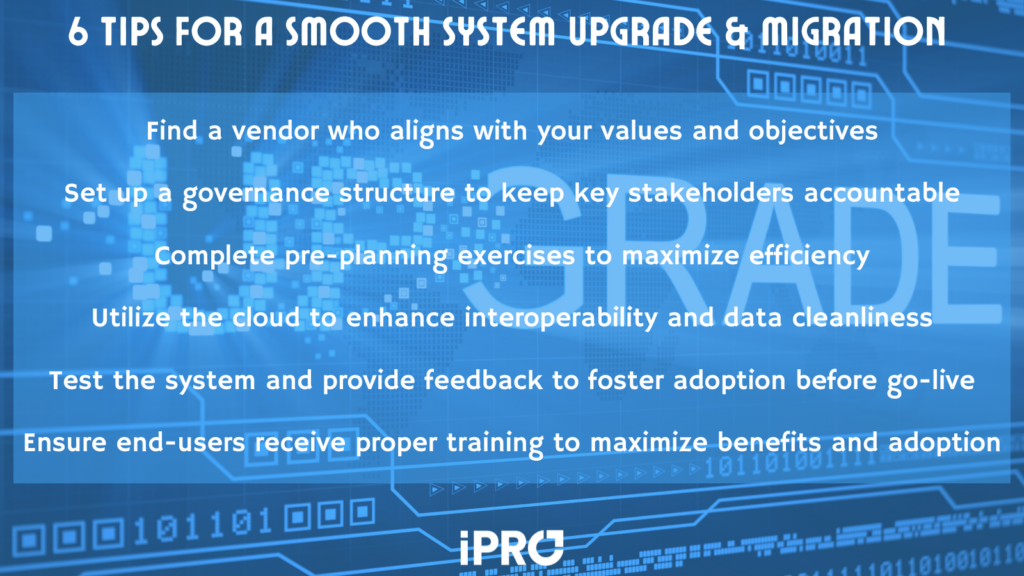
Having a proper plan in place and working with a vendor who aligns with your values and objectives can make system upgrades and migrations go much smoother.
Easier Data Sharing & Interoperability
Another top healthcare initiative for 2024 is easier data sharing & interoperability. Interoperability and the ability to quickly and easily access critical data is important in any industry, but especially in healthcare. Interoperability and data sharing has benefits for both providers and patients. For example, converting unstructured data to structured data, such as turning faxed orders into electronic orders (or eliminating faxes altogether), makes it easier to search and share health data between providers. This helps reduce burnout by eliminating time-consuming tasks such as manually entering data into the EHR and sorting through filing cabinets.
Making it easier for providers to share data also reduces care delays, resulting in better care and a better patient experience. Ensuring patients can quickly, easily, and securely access their own health data is another way that interoperability and easier data sharing can improve the patient experience. As the world becomes more digital, it becomes more crucial to ensure data is interoperable and easily shared.
Risk Mitigation
Risk mitigation is the third healthcare initiative that should be on every healthcare leader’s radar in 2024. Risk comes in many forms: claim denials and care delays, cyber attacks, legal and regulatory issues, and patient safety just to name a few. Each of these risks can be very costly, whether it be in the form of lost revenue or lawsuits and fines. Let’s take a closer look at each one.
Claim Denials and Care Delays
Minimizing claim denials and care delays should be a priority for two reasons. First, addressing these issues ensures patients get the care they need in a timely manner. This results in healthier and happier patients. This leads to the second reason: increased revenue from patient loyalty and referrals, and increased reimbursement from payers. Streamlining the prior authorizations process, improving the order management process, and incorporating patient engagement tools are key to minimizing claim denials and care delays.
Cyber Attacks
Cyber attacks are one of the most costly risks for healthcare organizations. A recent report estimates cyber attacks have cost U.S. healthcare organizations $77.5 billion in downtime alone since 2016. On average, providers experienced 14 days of downtime due to cyber attacks. Through mid-October, average downtime in 2023 is even higher at 18.7 days with an estimated cost of $14.7 billion, the third highest cost since 2016. These figures illustrate why it’s imperative to have stringent cybersecurity practices in place, such as cybersecurity training, data backups, and secure software.
Legal and Regulatory Issues
Legal and regulatory issues are another potential risk for healthcare organizations. HIPAA compliance is a major key to minimizing legal risks. A strong culture of compliance, including regular HIPAA training is vital for any healthcare organization. This also extends to the technology vendors with whom they partner. Look for vendors who also have a strong compliance culture.
Policy and regulation is ever-changing, so it’s also important for healthcare leaders to stay on top of the latest regulations. For instance, the increased use of AI in healthcare is likely to lead to new regulations in the coming year. Navigating regulations for emerging tech such as AI can be tricky, but it’s necessary to avoid financial penalties.
Patient Safety
Perhaps the most important area of risk mitigation is patient safety. A strong commitment to patient safety not only minimizes financial losses due to lawsuits and fines, but it also ensures patients receive the best care possible. Just as minimizing claim denials and care delays results in healthier and happier patients and fosters patient loyalty, a strong patient safety record does as well. Whether it’s ensuring the right exam is ordered for the right patient, or monitoring patients’ radiation exposure, we offer several solutions to enhance patient safety.
Multi-Departmental Benefits
Another initiative healthcare leaders should focus on in 2024 is investing in solutions that have multi-departmental benefits. Solutions that can improve efficiencies in multiple departments, from scheduling to billing to clinicians themselves, provide the most bang for the hospital’s buck. By shoring up deficiencies in multiple departments, these solutions also help achieve organization-wide goals such as reducing burnout and improving the patient experience.
We’re Here to Help with 2024 Healthcare Initiatives and Beyond
To recap, here are four initiatives we think healthcare leaders should focus on in 2024:
- System upgrades & migration
- Easier data sharing/interoperability
- Risk mitigation, and
- Multi-departmental benefits
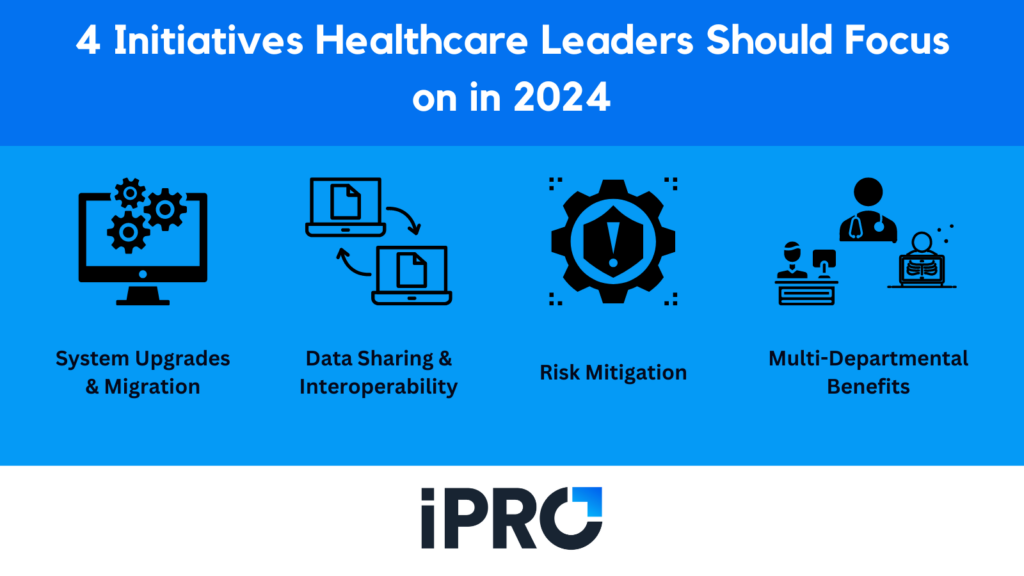
At iPro, we offer service and solutions that help with all these initiatives. Our support team has helped clients upgrade and migrate systems and data for over 25 years. Whether you’re looking to upgrade your medical imaging departments or improve your ambulatory order processes and reduce denials, we have the innovative solutions to make it happen. From radiology to cardiology to mammography, our imaging solutions streamline workflows and help improve patient care. Our referral order management software, iOrder, generates electronic orders that are completely interoperable with the EHR and fully validated to ensure accuracy. This reduces claim denials and care delays while maximizing reimbursement and patient satisfaction. iOrder also helps improve patient engagement through SMS-appointment reminders, links to procedure specific instruction videos, and navigation assistance.
If you’d like to learn more about how we can help with your healthcare initiatives, schedule a free live demo or contact us today.
